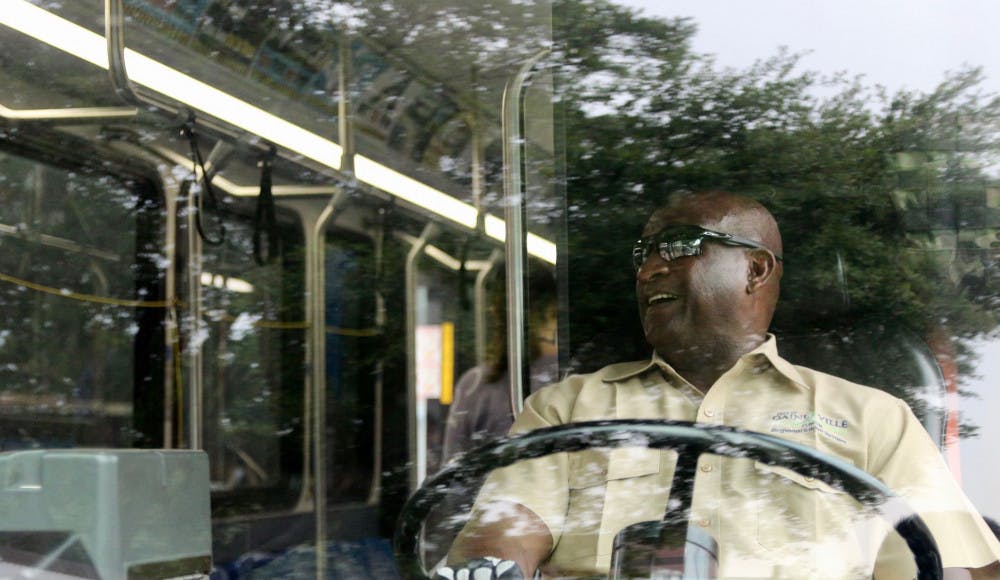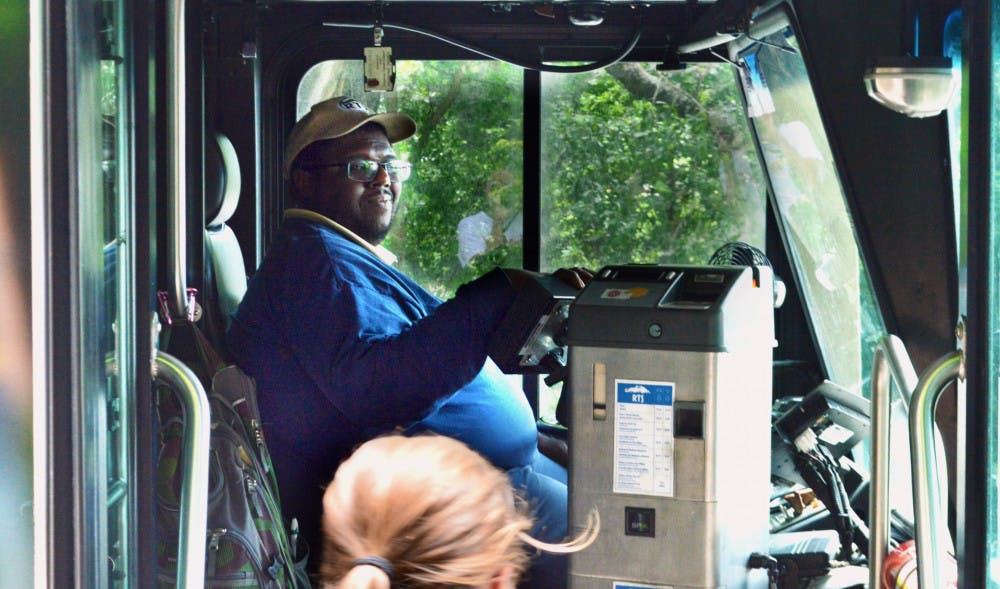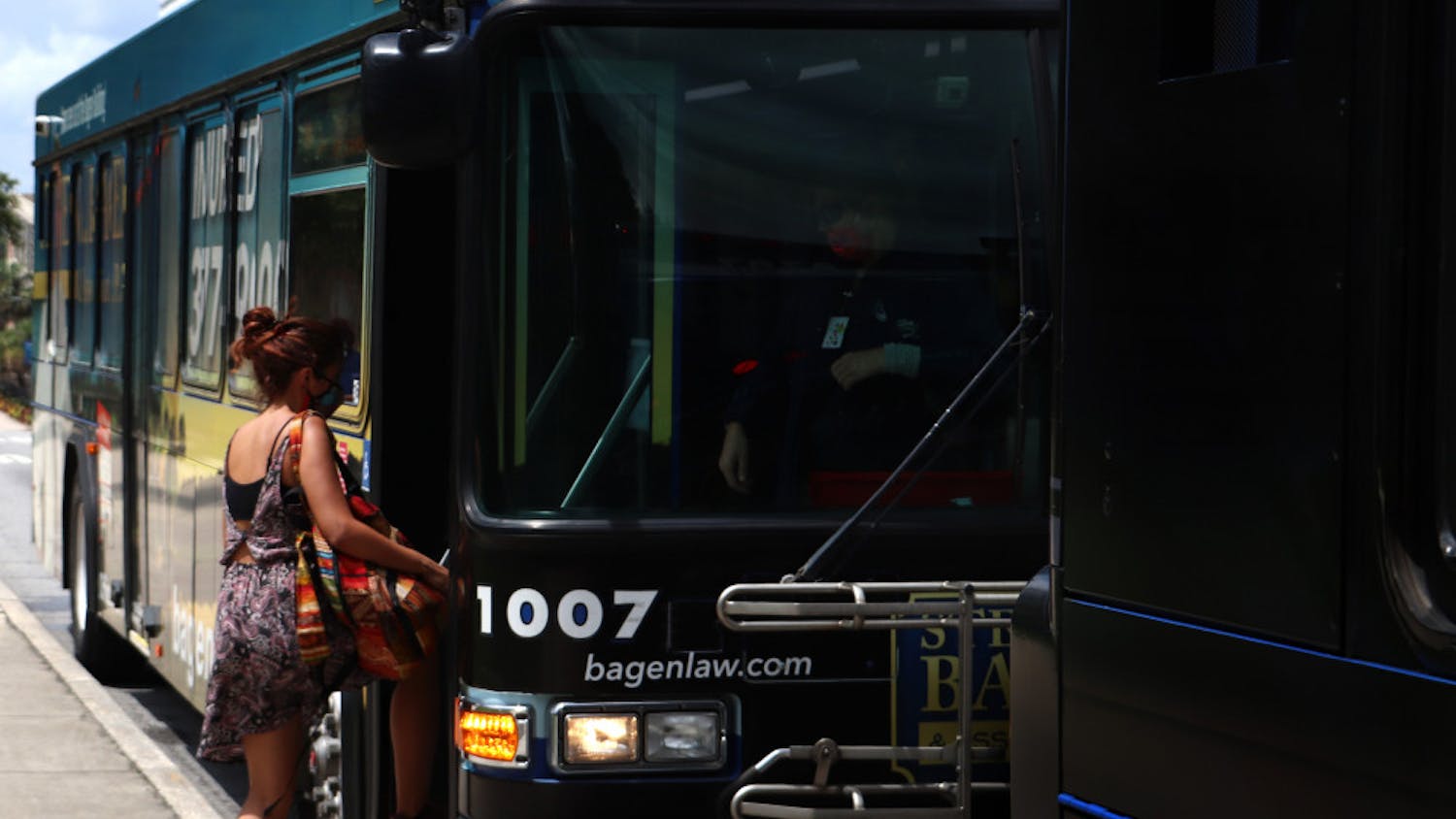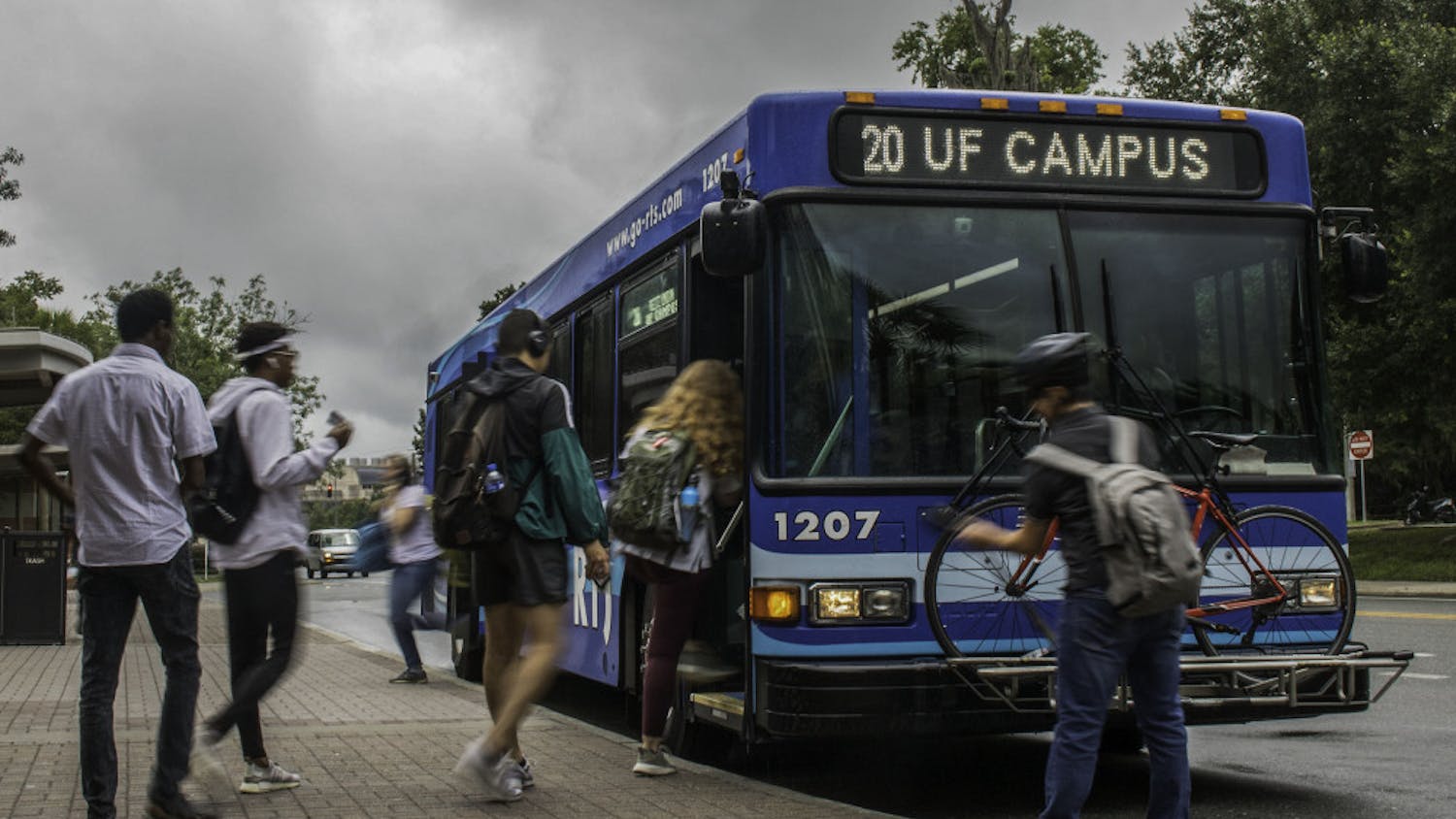When Desmond Grimes heard the fuzzy voice of control center from his bus radio, he told himself he would still find time for his daughter.
“Check your schedule,” the voice said.
Grimes, a Regional Transit System bus operator, instantly knew what that was code for: another eight-hour shift away from his 14-year-old. A shift he didn’t ask for.
“I made it known that I wasn’t happy about it,” he said. “I asked them ‘why do I need to check the schedule?’ even though I knew.”
Still driving in the bus, Grimes learned he wouldn’t get the Friday off he requested. Because of RTS’s driver shortage, he had been called in for a mandatory 12-hour shift.
So the next day, before his forced overtime shift began, he took his daughter to the shooting range and bought her ice cream. He came in an hour late to work, angry he had to go at all. His daughter only has a limited number of days off school, and he tries to take advantage of that time to spend time with her.
“She’s a teenager and in high school, so it won’t be long before she’s going off to college,” he said.
Grimes, who has worked for RTS for six years as a driver, plans to tell the city that bus operators are tired of working double shifts and tired of low pay. On May 16, he and other RTS employees represented by the Amalgamated Transit Union will sit across from city employees to demand higher wages and less forced overtime.
“I did all I could take to make sure I was on the negotiations team this year, to make sure that I could have a seat at the table,” he said.
Since 20 bus operators left for various reasons this Fall, the remaining 186 RTS drivers have had to handle unexpected shifts added to their schedules.
City spokesperson Chip Skinner said many drivers leave because of the pay. Other regional bus systems pay more than the $12.75 to $17.95 an hour offered by RTS. Skinner said the rate of pay for RTS workers is the pay agreed upon by the city and the labor union.
Zefnia Durham III, the bus union’s president, said cities like Jacksonville and Orlando draw RTS drivers away with higher pay. Orlando’s Lynx bus system said it pays trained drivers $15.24 to $21.77 an hour. Jacksonville Transit Authority has an upper range of around $21 to $22.
Bus operators’ last pay increase was in 2017, when all city workers making under $12.75 were given a raise, Skinner said. Before, the minimum bus operator pay was $11.75 an hour.
The city is conducting a study to find whether they are competitively paying drivers, said Christopher Beatty, an executive assistant in the city’s human resources department.
Grimes said he can’t afford to live in Gainesville, where he’s lived since he was a teenager, on his RTS salary. He moved to Ocala from Gainesville about seven months after starting as a bus operator, where he makes $13.69 an hour.
“Me, working as a city employee, should not feel like it should be a challenge to live in the city,” he said.
Durham said bus drivers should be paid enough to meet their skill level.
“A 16-year-old working part time at a pool during the summer is getting the same as someone with a state certificate,” Durham said.
He said some drivers who have worked more than 20 years haven’t reached the maximum pay.
There’s only one bonus program offered to bus operators, which was added two years ago, Skinner said. If drivers are accident-free for at least three consecutive years they receive a 10-cent per hour raise, and after 15 years, they can get a 50-cent raise. Drivers earn pay and a half for overtime shifts.
Durham said drafting, the system of assigning extra shifts to bus drivers, was less common four years ago when he was a driver.
“If you used to draft five people, that was a problem,” he said. “Now if you draft just five people, that’s a blessing.”
When Grimes gets the call telling him to “check his schedule,” he either works and misses time with his daughter or skips it and gets in trouble with management.
When he decides the extra shift isn’t worth it, he calls management and hopes his only punishment is paperwork. Drivers who ignore their forced overtime can face punishments ranging from a warning to being fired, Skinner said.
Grimes said he plays the game to get out of forced overtime. Today, his daughter has a dance competition in Daytona Beach at 4 p.m. Instead of taking the day off and eventually being drafted, he signed up for a morning shift to avoid last-minute scheduling.
The Department of Transportation codes say bus drivers in Florida can work 16 hours a day, as long as they only drive for 13 hours — excluding the 30 minutes they take to drive each way from the bus facility to the first stop.
Eight hours of break are required between twelve-hour shifts. A driver who has only worked an eight-hour shift can be asked by management to stay on the bus. RTS bus operators do not drive more than 72 hours a week, Skinner said.
“If they say they are fatigued, they won’t be on the road,” he said.
Durham said drivers are working more shifts than ever. Even with the increase in overtime, buses are canceled and riders are left deserted at stops when management can’t find a driver for an extra shift.
In March, RTS cut back service for 15 bus routes because of the driver shortage.
However, Skinner said RTS was able to “easily rectify the driver shortage” with 35 applicants who applied after a job fair in the beginning of March. Skinner said RTS will be able to return to full service by Fall.
The city changed the standards to be an operator, which may have contributed to more applicants, Skinner said. As of Feb. 26, applicants can now be accepted with three consecutive years of driving experience rather than five.
With lowered standards, Durham worries about safety.
“To me, lowering a standard says ‘I’m not as concerned with my customers as I am with filling a quota,’” he said.
Skinner said all drivers go through the same training.
“We aren’t worried about a lesser-quality candidate,” he said. “We are just still trying to fill the candidate pool.”
Durham said there aren’t enough drivers to cover all the buses the city needs. Last Sunday, he said a route 20 bus wasn’t on the road because there wasn’t a driver available.
“You have people standing outside waiting for a bus that will never show,” he said.
Amanda Apatow said she can’t rely on RTS’s Rider app to tell her correctly when the bus will arrive. The 27-year-old said if she misses the bus by a second, she could end up waiting half an hour to commute back from her job.
“It’s just a pain,” she said.
Apatow, who works at the Hub, said she needs to be at work by 8 a.m., but as of March, reduced service made commuting tricky. The route 29 bus, which she rode every morning to campus, was canceled. She now wakes up 30 minutes earlier, at 5:45 a.m., to catch the 8 bus.
Durham said students should be concerned when the service is diminished.
“They aren’t lowering your tuition,” he said. “They are just lowering your service, and that’s not right.”
UF students pay a $9.44 per credit hour transportation fee, and about 92 percent of that goes to RTS.
UF spokesperson Margot Winick said UF pays RTS based on the hours of service.
Winick said UF is charged less if service is reduced. The money budgeted to spend on RTS service that isn't spent is saved to be carried forward into the next year.
"That carry forward money could be spent on other student transportation programs, used to cover projected increases in RTS costs, etc.," Winick said.

Al Holmes, 59, greets every passenger with a “good morning” as they board the bus Thursday mornings. He gets up early in the morning to work his shift, which begins at 4:30 a.m., and drives the 118 route which goes all the way from the Cultural Plaza to the Hub, traversing from east to west across campus.
To the students who ride the 118 with him, Al Holmes is “Uncle Al.”
Holmes, 59, said he has greeted every passenger with a hello and a smile for the past 16 years. Even though he makes less than $16 an hour, Holmes saved up to give kids who rode his downtown bus route a Dum Dums lollipop.
“I spent money out of my pocket to put a smile on a kid’s face,” he said.
The Army veteran said RTS will never take away his smile, but he isn’t hopeful about this year’s negotiations. He thinks they won’t give a big raise to the drivers, only “peanuts.” In the meantime, he’s waiting out the last four years he expects to work for RTS.
“You just got to weather the storm and hope and pray that something happens,” he said.
The headline of this article has been updated to clarify that the low pay led to the shortage of bus drivers and forced overtime. The previous headline was "Bus driver shortage leads to forced overtime, low pay."
This story has also been update to include comment from UF spokesperson Margot Winick.
Contact Meryl Kornfield at mkornfield@alligator.org. Follow her on Twitter at @merylkornfield.
Desmond Grimes, 38, welcomes students onto the 117 Bus at the Reitz Union. Grimes’ route, “Park-N-Ride 2,” circulates through 34th Street back to the Reitz Union.






